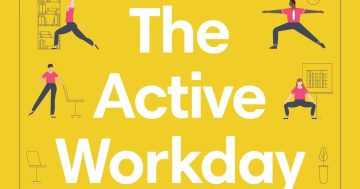Ashley Stahl* says that in a workplace culture that increasingly demands you do more with less, it is crucial to put your best efforts into the areas that bring you the greatest benefit.
 In today’s work culture, we’re pulled in several different directions all at once.
In today’s work culture, we’re pulled in several different directions all at once.
We’re expected to multitask to complete projects under tight deadlines.
However, a new study has found that only 2.5 per cent of the population can effectively multitask.
When we think we’re multitasking, we’re actually completing individual actions in rapid succession — we’re task switching, which is highly inefficient.
Research has shown that task switching can even cause brief mental blocks, costing as much as 40 per cent of someone’s productive time.
Henry Ford realised this when he introduced the assembly line in 1913 to build cars.
Each person on the line had one task. During their eight-hour shift, they mastered their task.
The assembly line remains one of the most efficient work systems today and is widely used in manufacturing with the use of assembly-line robots.
Much of an eight-hour workday is spent doing busy work — responding to emails, attending meetings, and updating project management apps.
We’re drawn in different directions and we’re getting burned out.
A Gallup study found that three in 10 millennials are very often or always burned out at work; seven in 10 experience burnout to some degree.
Topping the list of causes include unmanageable workload and unreasonable time pressure
It’s not that the eight-hour workday doesn’t work.
It’s that the eight-hour workday has shifted from doing one thing and doing it well to swimming in a sea of wondering what to do next only to get interrupted by the onslaught of technology or meetings.
Morten Hansen, of the University of California, coined the phrase: “Do less and obsess.”
His research found that performance is not defined by the number of hours you work but rather by the work you do in those hours.
He found that after 50 hours a week, performance decreases. He also found that when workers focus on fewer tasks, they achieve better results.
Unfortunately, this is contrary to our current corporate culture, but as an employee there are things you can do.
Select key priorities and make huge efforts in those areas.
You cannot do everything, so do what matters most and make great strides in those select areas.
You want colleagues to champion your efforts and you do that by showing that you make a real difference in the things you do.
This means having boundaries — with yourself and others — to ensure that you’re really able to give yourself the time and space needed to focus and execute.
Consider starting each day with the question: “What is the one thing I need to do to make the biggest impact at work today?”
Focus on creating value.
Creating value at work is part of creating a successful career. Adding value doesn’t have to be grandiose…even small contributions can make a big difference.
The value you add strengthens your personal brand while at the same time providing that something extra.
Always do your best work. It can be tempting on a Friday afternoon or when you’re up against a deadline to do “good enough”.
However, “good enough” only undermines your ability as well as your integrity.
Become an expert in your position by going that extra mile beyond your training to learn everything you can about your position and role within the organisation.
Better skills practice.
Upskilling is the latest buzz. Upskilling is driven by advances in technology that create skill gaps in the workforce.
New technologies are rapidly changing the way we work, and were accelerated by the pandemic.
As we move further into the year, jobs in healthcare support, artificial intelligence, cloud architecture, data science, and cyber-security will continue to be in demand.
Be strategic when updating your skills.
Remember, not only are technical skills necessary but also skills such as conflict resolution, online communication, emotional intelligence, and cognitive flexibility.
Match your passion with a strong sense of purpose.
Most of us work to earn money.
However, studies show having a sense of purpose leads to better overall wellbeing, a greater sense of belonging, and increased career satisfaction.
Remind yourself of your ‘why’ for doing the work you do.
It is easy to get lost in the day-to-day and lose sight of how your work contributes to the greater good.
Become a champion for your work.
A champion is someone who challenges ‘good enough’ and offers a broader perspective.
Inspire people to follow your work. Give them a reason to stand behind what you’re trying to accomplish.
You do this by never compromising your values or the integrity of your personal brand for short-term gains for yourself or your employer.
Don’t downplay your contributions to a project or your role in the organisation.
A Harvard University study found that those who do not self-promote are less likely to be hired, promoted, or get a raise or bonus.
It’s okay to champion your work. You’ll find that your work will improve as you stand behind what you do.
Work should not be consumed by busyness. Busyness gives the appearance of having a lot to do, but in reality very little is accomplished.
Use these tips to find real meaning and direction in your work by taking extra time to really focus on what matters most.
*Ashley Stahl is a career coach, keynote speaker, podcast host (You Turn Podcast) and author. In a previous life she was award-winning counter-terrorism professional. She can be contacted at ashleystahl.com.
This article first appeared on ashleystahl.com.











